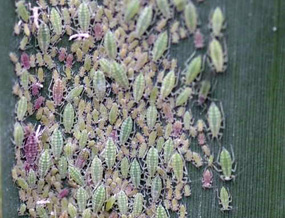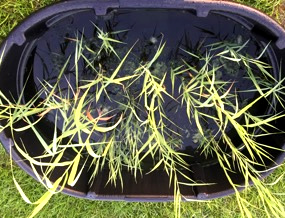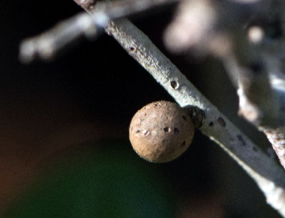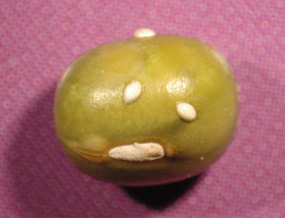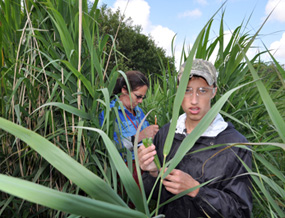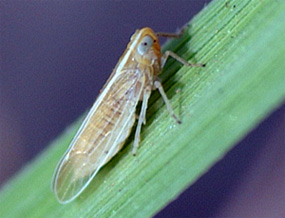Cronin, J. T. & D. R. Strong. 1990. Biology of Anagrus delicatus (Hymenoptera: Mymaridae), an egg parasitoid of Prokelisia marginata (Homoptera: Delphacidae). Annals of the Entomological Society of America 83: 846-854.
ABSTRACT
Anagrus delicatus Dozier is a common egg parasiloid of the planthopper Prokeliska marginata (Van Duzee). P. marginata inhabits salt marshes along the Atlantic and Gulf Coasts of the United States and feeds exclusively on salt marsh cordgrass. Spartina alterniflora Loisel. A. delicatus is closely associated with its host throughout its range. Two larval instars of A. delicatus were identified from their host eggs. Male and female wasps take an average of 54.2, 35.9, and 21.7 d to develop from egg to adult at l6, 22, and 30 EC, respectively. The developmental threshold temperature is approximately 7.1 EC, and wasps require a minimum of 504 degree-days (DD) to complete development. The sex ratio of emerging adults is skewed toward females (l:2.4, M/F). Females eclose with an average of 33 eggs (range, 2,l-46) and are capable of immediate mating and oviposition. Females can produce male offspring parthenogenetically, and virgin females parasitize significantly more hosts during the first 24 h than mated females. Life for adult females was relatively short: females fed honey and water lived an average of 3.3 d, but those provided only water averaged just 2.0 d. Females laid 25% ol their eggs on the first day, and oviposition ceased by the third day. In all, oviposition for honey-fed females ceased after only 43% of the eggs were laid. Host eggs are capable of being parasitized throughout development, but paraaitoid survival in older host eggs (embryos) is lower than in younger eggs.
